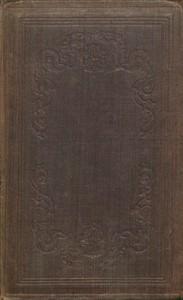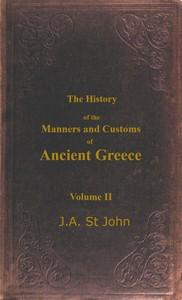|
|
Read this ebook for free! No credit card needed, absolutely nothing to pay.Words: 80689 in 35 pages
This is an ebook sharing website. You can read the uploaded ebooks for free here. No credit cards needed, nothing to pay. If you want to own a digital copy of the ebook, or want to read offline with your favorite ebook-reader, then you can choose to buy and download the ebook.

: The Treasure Trail by Pollock Frank Lillie Gowing Louis D Illustrator - Adventure stories; Canadian fiction@FreeBooksThu 08 Jun, 2023 LOUIS CLARK VANUXEM FOUNDATION ROMANCE TWO LECTURES BY SIR WALTER RALEIGH M.A., PROFESSOR OF ENGLISH LITERATURE IN THE UNIVERSITY OF OXFORD, FELLOW OF MERTON COLLEGE LECTURES DELIVERED AT PRINCETON UNIVERSITY, MAY 4TH AND 6TH, 1915 PRINCETON UNIVERSITY PRESS PRINCETON LONDON: HUMPHREY MILFORD OXFORD UNIVERSITY PRESS Published October, 1916 THE ORIGIN OF ROMANCE It is not needful, nor indeed is it possible, to define Romance. In the mathematical sciences definitions are all-important, because with them the definition is the thing. When a mathematician asks you to describe a circle, he asks you to create one. But the man who asks you to describe a monkey is less exacting; he will be content if you mention some of the features that seem to you to distinguish a monkey from other animals. Such a description must needs be based on personal impressions and ideas; some features must be chosen as being more significant than the rest. In the history of literature there are only two really significant things--men, and books. To study the ascertained facts concerning men and books is to study biography and bibliography, two sciences which between them supply the only competent and modest part of the history of literature. To discern the significance of men and books, to classify and explain them, is another matter. We have not, and we never shall have, a calculus sufficient for human life even at its weakest and poorest. Let him who conceives high hopes from the progress of knowledge and the pertinacity of thought tame and subdue his pride by considering, for a moment, the game of chess. That game is played with thirty-two pieces, of six different kinds, on a board of sixty-four squares. Each kind of piece has one allotted mode of action, which is further cramped by severe limitations of space. The conditions imposed upon the game are strict, uniform, and mechanical. Yet those who have made of chess a life- long study are ready to confess their complete ignorance of the fundamental merits of particular moves; one game does not resemble another; and from the most commonplace of developments there may spring up, on the sudden, wild romantic possibilities and situations that are like miracles. If these surprising flowers of fancy grow on the chess- board, how shall we set a limit to the possibilities of human life, which is chess, with variety and uncertainty many million times increased? It is prudent, therefore, to say little of the laws which govern the course of human history, to avoid, except for pastime, the discussion of tendencies and movements, and to speak chiefly of men and books. If an author can be exhibited as the effect of certain causes he loses his virtue as an author. He thought of himself as a cause, a surprising intruder upon the routine of the world, an original creator. I think that he is right, and that the profitable study of a man is the study which regards him as an oddity, not a quiddity. A general statement of the law that governs literary history may perhaps be borrowed from the most unreasonable of the arts--the art of dress. One of the powerful rulers of men, and therefore of books, is Fashion, and the fluctuations of literary fashion make up a great part of literary history. If the history of a single fashion in dress could ever be written, it would illuminate the literary problem. The motives at work are the same; thoughtful wearers of clothes, like thoughtful authors, are all trying to do something new, within the limits assigned by practical utility and social sympathy. Each desires to express himself and yet in that very act to win the admiration and liking of his fellows. The great object is to wear the weeds of humanity with a difference. Some authors, it is true, like timid or lazy dressers, desire only to conform to usage. But these, as M. Brunetiere remarks in one of his historical essays, are precisely the authors who do not count. An author who respects himself is not content if his work is mistaken for another's, even if that other be one of the gods of his idolatry. He would rather write his own signature across faulty work than sink into a copyist of merit. This eternal temper of self-assertion, this spirit of invention, this determination to add something or alter something, is no doubt the principle of life. It questions accepted standards, and makes of reaction from the reigning fashion a permanent force in literature. The young want something to do; they will not be loyal subjects in a kingdom where no land remains to be taken up, nor will they allow the praise of the dead to be the last word in criticism. Why should they paraphrase old verdicts? Free books android app tbrJar TBR JAR Read Free books online gutenberg More posts by @FreeBooks
: Gleanings from Maeterlinck by Maeterlinck Maurice Teixeira De Mattos Alexander Translator - Death; Belgian essays (French) Translations into English@FreeBooksThu 08 Jun, 2023

: Unfinished Rainbows and Other Essays by Anderson George Wood - Christianity@FreeBooksThu 08 Jun, 2023
|
Terms of Use Stock Market News! © gutenberg.org.in2025 All Rights reserved.






